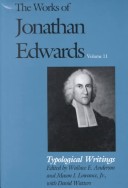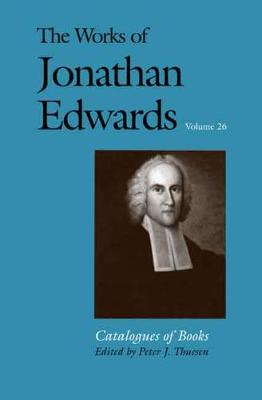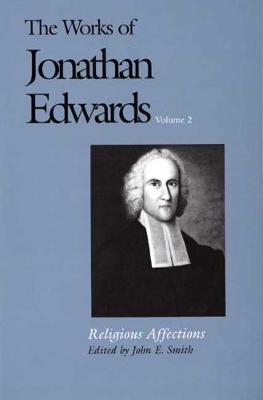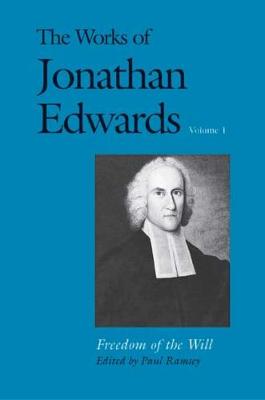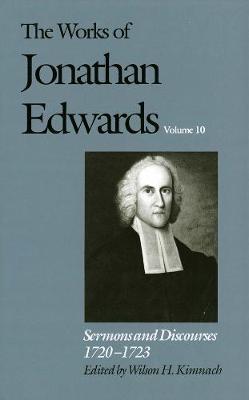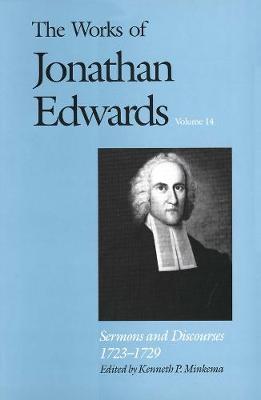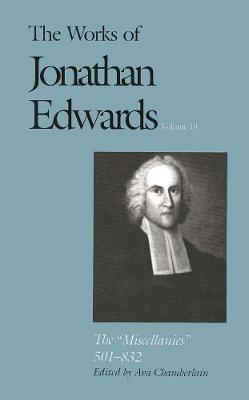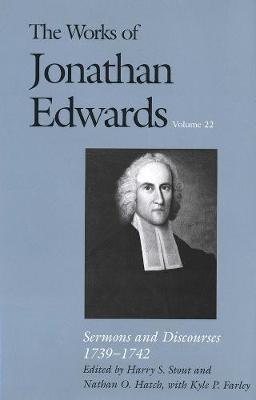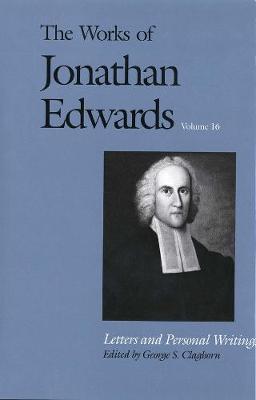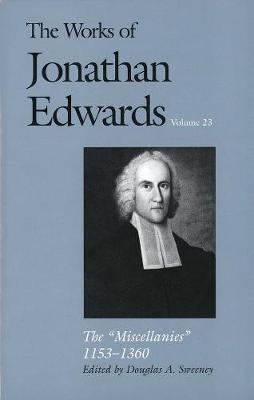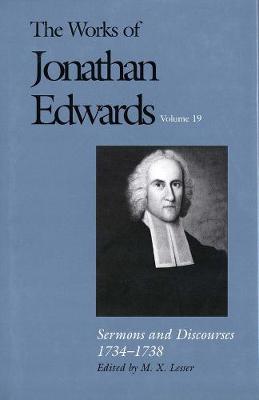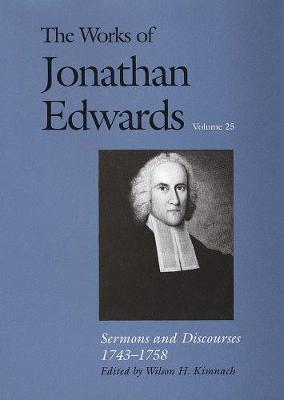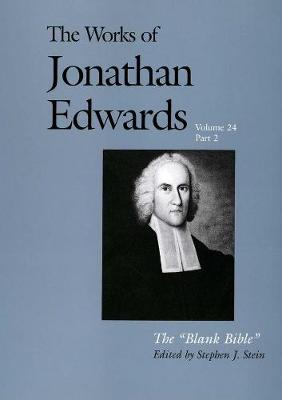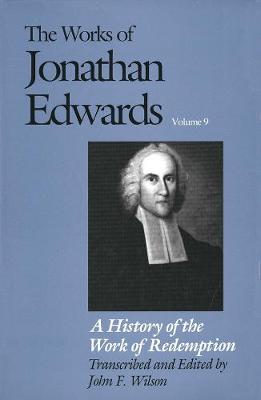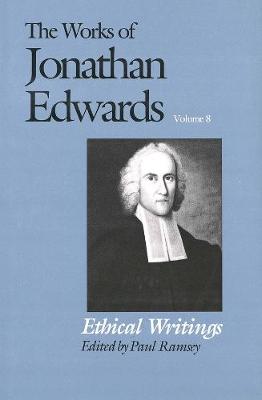The Works of Jonathan Edwards
27 total works
In this volume is also published the first complete edition (since the eighteenth century) of the Humble Attempt (1748)-the call for united prayer that was Edwards' response to the decline in religious fervor after the Great Awakening. In his Introduction and commentary, Stephen J. Stein examines the development of Edwards' apocalyptic interests in the light of the situation in the eighteenth century, showing also how Edwards' private judgments on the book of Revelation affected his personal and theological activity. Together the texts and the Introduction illuminate a hitherto inadequately explored facet of Edwards' religious thought.
With this volume, the Yale edition of the Works of Jonathan Edwards inaugurates the publication of Edwards' major manuscripts. Here, and in subsequent volumes, the massive body of Edwards' manuscripts materials (including letter, sermons, and Miscellanies) will be made available for the first time.
Stephen J. Stein is associate professor of religious studies at Indiana University.
Edwards' theories of typology have long fascinated scholars from a variety of fields and have dominated literary studies of his work. These documents illuminate Edwards' epistemology and show clearly his involvement in contemporary philosophical and exegetical trends. Introductions to the documents place Edwards' typology within the context of his period, describe his typological practices, clarify some of the complex problems posed by his ambiguous use of the types throughout his career, and discuss his philosophical defenses of typologizing against the claims of materialists, deists, and rationalists.
In a carefully researched introduction, C.C. Goen identifies the "Arminian threat" to which the Northampton pastor responded at the onset of the Awakening, and traces Edwards' understanding of vital religion as it developed in the ambiguous context of revivalism. Mr. Goen's study also illuminates little-known aspects of A Faithful Narrative and describes the haphazard way in which that important work reached its eager audience.
C.C. Goen, author of Revivalism and Separatism in New England, 1740-1800 (1962), is professor of church history at the Wesley Theological Seminary in Washington, D.C.
John Taylor's treatise was perhaps the boldest and most impressive assault on the doctrine which more than any other contradicted the Enlightenment view of man, and it haunted Edwards throughout all the pressing duties and personal hardships of the years just before and during his sojourn at Stockbridge. Ultimately, he was able to develop a thorough rebuttal of Taylor which focused on three major issues: the fact and nature of original sin, its cause and transmission, and God's responsibility for man's sinfulness.
First published in 1758, The Great Christian Doctrine of Original Sin Defended went though at least 13 separate editions and was included in all collected editions of Edwards' works. The text of the first edition has now been brought into accord with the principles of the Yale Edition, making full use of all relevant manuscript materials. Mr. Holbrook's comprehensive Introduction and annotations provide detailed information about the sources, development, and reception of the work.
Clyde A. Holbrook is William H. Danforth Professor of Religion at Oberlin College.
This final volume in The Works of Jonathan Edwards publishes for the first time Edwards' "Catalogue," a notebook he kept of books of interest, especially titles he hoped to acquire, and entries from his "Account Book," a ledger in which he noted books loaned to family, parishioners, and fellow clergy. These two records, along with several shorter documents presented in the volume, illuminate Edwards' own mental universe while also providing a remarkable window into the wider intellectual and print cultures of the eighteenth-century British Atlantic. An extensive critical introduction places Edwards' book lists in the contexts that shaped his reading agenda, and the result is the most comprehensive treatment yet of his reading and of the fascinating peculiarities of his time and place.
Works of Jonathan Edwards, The: Volume 21, Writings on the Trinity, Grace, and Fait
by Jonathan Edwards
The Works of Jonathan Edwards, Vol. 1
by Jonathan Edwards and Paul Ramsey
Published in 1749, the Life of Brainerd became a spiritual classic in its own time. As the first popular biography to be published in America, it went through numerous editions and has been reprinted more frequently than has any other of Edwards' works. But what has not until now been known is that Edwards made drastic alterations in the original text. He shaped the narrative events to fit his own needs, presenting Brainerd as an example of a man who by example and deed opposed the rationalist, Arminian stance. Because the Yale edition is the first to print that portion of Brainerd's manuscript that survives, set in parallel columns with Edwards' text, these alterations can readily be discerned.
This edition of The Life of David Brainerd, the first complete, fully annotated edition ever to be compiled, includes related correspondence as well as an endpaper map of Brainerd's travels. The editor's introduction describes the place of Brainerd's diary in Edwards' life and thought, and provides ample historical background.
The volume includes a general introduction that puts Edwards's thirty-five years of writing and preaching into a broad literary and historical context. Based on the study of his entire sermon corpus-including over seventy printed sermons and twelve hundred sermon manuscripts-as well as related notebooks, letters, and treatises, the introduction enables readers to understand the elaborate network of working papers through which Edwards evolved his thought, as well as the critical function of the sermon in testing and developing expression of that thought. The introduction also explores the literary context of Edwards's writing, especially relating to the theory and practice of homiletics.
In his introduction, Kenneth P. Minkema weaves together the details of Edwards's emerging career with the concerns expressed in the sermons. He shows how Edwards addressed local and provincial concerns as well as the great theological debates of his day, and how he struggled to work out the implications of his innovative concept of "excellency" and to develop his definition of conversion as a "spiritual light."
From these sermons emerges an unparalleled portrait of a rapidly maturing Edwards seeking to give shape to his theological vision.
Edwards used the "Miscellanies" as a repository for ideas that he intended to develop in future sermons and treatises, and these entries contain the seeds of such contemporaneous works as Justification by Faith Alone and The History of the Work of Redemption. These entries also record how the Connecticut Valley revivals influenced Edwards' thoughts on such important theological topics as the significance of perseverance, the nature of spiritual knowledge, justification by faith alone, the rationality of the Christian religion, the history of the work of redemption, and conversion and the religious life.
These letters and personal writings reveal the private man behind the treatises and sermons. They trace his relations with parents, siblings, college classmates, friends, and family, as well as with political, religious, and educational leaders of his day. New documents include Edwards’ only known statement on slavery and letters on the Indian mission at Stockbridge, Massachusetts, that display Edwards’ interest in native Americans and his efforts on their behalf. These writings show the human face of Edwards as he applied theological and philosophical insights to the events of his daily life. They provide an unprecedented resource for understanding the man, his times, and his personal connections.
During this period Edwards delivered probably four hundred sermons and lectures. Of the fewer than half that survive, some extend the reach of the previous dozen years of his ministry, others engage speculative theological issues, others touch on pastoral life, and still others deal with conversion and, in time, declension. Edwards also wrote a full account of the Northampton revival, A Faithful Narrative of the Surprising Work of God, which was published in 1737 in London and Edinburgh and within a year was reprinted there, issued in Boston in three printings, and translated into German. In addition, near the end of the period Edwards put together Discourses on Various Important Subjects, five sermons about the Awakening and the only gathering of sermons he saw through the press.
Edwards’ various writings of 1743–58 map the complex terrain of his spiritual, intellectual, and professional life after the Great Awakening. He deals with topics ranging from the spiritual role of youth in the community to the struggles over communion in his Northampton congregation to the war with the French and their Indian allies.
This volume, perhaps the most unusual in Edwards' oeuvre, brings to light more clearly than ever before the full scope of his creative investment in biblical studies.
The text is based upon a new transcription of the original preaching booklets in which Edwards wrote out his sermons. In this sense, it restores an earlier and more authentic, if less polished, version of the work than the one that was edited and issued after Edwards' death. As a critical edition it presents Edwards' Redemption Discourse for the modern reader with appropriate annotations and references.
This volume includes a substantial introduction that places the composition of the sermons in the context of the period and discusses the reception and influence of the many editions of the published version. The introduction also interprets the place of this particular work in Edwards' thought more generally, de-emphasizing the historical interests he has been alleged to have shown in it and emphasizing instead the ambitious theological program which it represented. Accordingly, this volume presents this major treatise in a fresh light and suggests new lines of inter-connection with other elements of his work.
John F. Wilson is Agate Brown and George L. Collord Professor of Religion at Princeton University.
The Works of Jonathan Edwards, Vol. 8
by Jonathan Edwards and Paul Ramsey
The text of the sermon series is drawn from three sources. The primary text is an early nineteenth-century transcription of Edwards' sermon booklets now in the Andover-Newton Theological School's collection. Passages published in Tyron Edwards' 1852 edition, and partial transcriptions by Joseph Bellamy found in three fragments among his papers, have been used where the Andover copy is incomplete. The Bellamy fragments are reproduced in their entirety in a critical appendix, along with examples showing the editor's use of the three sources in construing this definitive text for the Yale edition.
End of Creation and True Virtue, intended by Edwards to be read together, are shown here to be closely related to Edwards' other writings. Paul Ramsey's introduction points out that Edwards returned again and again to these topics in his Miscellanies, where he identifies penultimate versions of both treatises and traces the development of Edwards' ideas. Thus the reader is able to follow Edwards' most profound reflections about God and the moral dimensions of his creations.
This is one of the most wide-ranging theological and philosophical volumes projected in the Yale edition. The Editor's Introduction gives a systematic analysis of the theological ethics to be found in these writings and of Edwards' esteem for the splendor of common morality. Appendices exploring the "moral sense" school, "infused" virtue in Edwards and Calvin, and Edwards' belief in the never ending increase of holiness and happiness in heaven complete the volume.

